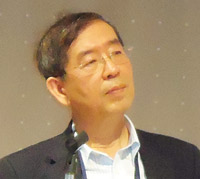In spite of the progress of civil society in Asia, NGOs in the region have been facing significant organisational challenges regardless of their field of operation and core values for creating a better society. To share a direction and vision, the first Asia NGO Innovation Summit (ANIS) 2010 was co organised by The HOPE Institute and Intel Asia at Seoul, South Korea in September 2010.
By Rajeshree Dutta Kumar
The 1st Asia NGO Innovation Summit (ANIS) 2010 was jointly organised by The HOPE Institute and Intel Asia, bringing NGO leaders together across the Asian region, strengthening the impact of NGO community in Asia in the first week of September, 2010. The Summit was built around the theme on connecting and building Asia through social innovation. The partners for the Summit were Asian Regional Exchange for New Alternatives (ARENA), The Beautiful Store, The Beautiful Foundation, Civil Society Organisation Networks in Korea, Haja Center, and The UN Global Compact Korea Network.
The three day Summit, through its capacity building focus, sought to strengthen the organisational dimensions of NGOs, captured the effective and sustainable endeavours of many voluntary groups and NGOs in Asia, while promoting cross-fertilisation of knowledge, experiences, and perspectives between different NGOs and actors.
Setting the Context
Dr Won Soon Park, Executive Director, The Hope Institute, Seoul, South Korea
The Summit was opened with a joint Welcome remark by Won Soon Park, Executive Director, The Hope Institute, Seoul, South Korea and by Anjan Ghosh, Regional Director, Corporate Affairs Group, Intel Asia- Pacific. While sharing the focus and objective of the Summit, they emphasised that the NGOs have played a significant role in providing a space to solve big challenges of present times. They also highlighted that NGOs are also faced with internal challenges that May be an obstacle to achieving the social goals that they set out to accomplish. NGOs are struggling with financial difficulties, shortage of human resources, and they are constantly striving to play a catalyst role to build healthy governance and partnership among diverse stakeholders within the society. It is in this regard that we strongly recognise the need for NGOs in Asia to learn and share ideas on how to build their capacity and constantly transform ourselves in an innovative way. The idea is explore and identify alternative ways of moving forward together. The inaugural session was concluded with the declaration of the congratulatory note sent by Ki-Moon Bahn, the Secretary General, United Nations commending the initiatives taken through the Summit.
NGOs moving towards Social Innovation
The Day I started with the Keynote address by Sanjit Bunker Roy, Founder and Director, The Barefoot College, India, on Demystifying Professionalism. Recipient of many awards and honour, he shared the Barefoot approach of training rural semi-literate middle aged women to solar electrifying their own villages. The college, based in the village of Tilonia in Rajasthan, India, is the only college that follows the life and work style of Mahatma Gandhi, where living conditions are simple, and where there are no written contracts. So far they have been able to work in Afghanistan, Mali, Russia, Bhutan and Namibia. The second Keynote was delivered by Brenton Caffin, CEO, The Australian Centre for Social Innovation (TACSI), Australia on public policy, performance improvement and change management.
The Day I also focused on various approaches through which NGOs can involve community and citizen participation to bring societal change and efforts were made through breakout group discussion in evolving innovative ideas in addressing the various challenges of participation by communities. Dr Wonsoon Park also threw some light on the significance of citizens' participation towards building a society founded on Social innovation. The second half of the day also witnessed case presentations by Howard Chan, Member, Community Museum Project, China and Shingo Hattori, Secretariat, Earth Day Money Association, Japan.
NGOs moving towards Sustainable Partnership and Governance
The deliberation on Day II was directed on evolving innovative strategies to build collaborations across sectors and stakeholders. The focus was also on the innovative ways of mazimising the use of ICT to promote partnership between different sectors and stakeholders. Marianne Quebral, Executive Director, Venture for Fundraising, Philippines. She highlighted various models of fundraising, which is a core activity in the NGO sector. She shared with the delegates her success story on managing the largest non-profit direct mail campaign in the Philippines with over one million letters sent annually, raising more than 85 million pesos in less than four years. The session theme was adequately substantiated with case presentations by Hyunyi Hwang, Project Manager, The Beautiful Store, Seoul, South Korea on the Beautiful Store's Learning and by D E Susapto, Coordinator of Employment Civil society, Bina Swadaya, Indonesia.
The second half of the session focused on the financial sustainability and various ways on delivering solutions in case of financial crisis. The exercise was contexualised by Prof Francisco L Roman, Executive Director, RVR Centre for Corporate Social Responsibility, Philippines through his speech and presentation on Governance and Collaborative Engagement. He shared two case studies






















